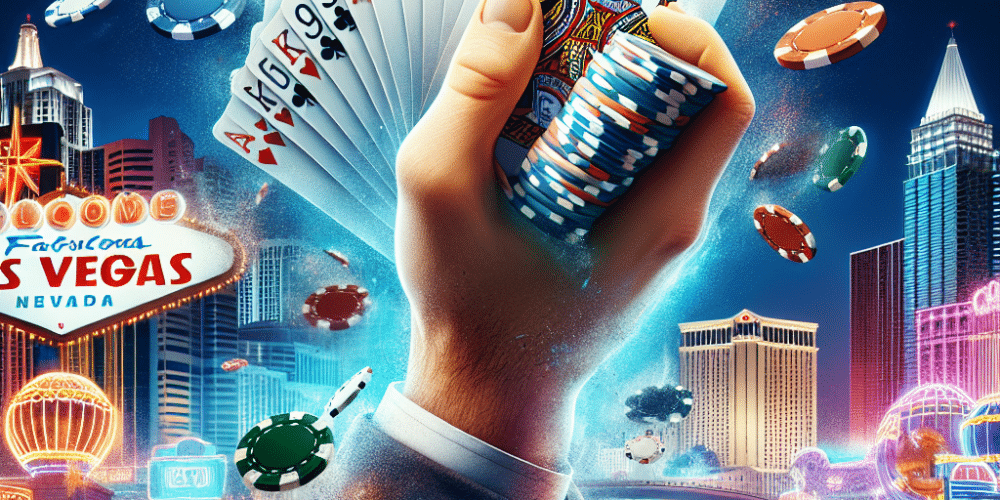A tense poker night in Vegas where a bad beat turned into a surprising victory.
Last night was one of those classic Las Vegas scenes—neon lights blinking their incessant winks, the murmur of slot machines, and the distinct clinks of chips echoing through the casino. I was settled in at a well-worn felt table, about to dive deep into an intense session of Texas Hold’em. You see, the dynamics at a Vegas poker table are a peculiar blend of brash tourists, serious rounders, and those just trying to strike it big—quick. I, somewhere in the middle, with my love for the game and an ever-itching desire to sharpen my play, found myself both excited and cautious as the cards were dealt.
The game started off rocky. I mean, within the first hour, I took a hard hit thanks to a classic bad beat. There I was, holding a pair of kings, feeling somewhat confident—perhaps overly so. The flop was kind, two kings and a ten. A full house for me right from the get-go! I tried masking my glee with the usual poker face, though I must admit, my heart was thumping a chaotic rhythm against my chest. As the remaining cards were revealed—another ten and then, disastrously, a queen—the air around me thickened. My opponent, a slick fellow with a half-hearted poker hat, revealed his pocket queens. From joy to despair in a heartbeat; that’s poker for you.
But here’s the thing about poker—it’s not just about the cards. It’s a mental arena. After that hand, the slick-hatted guy started playing with an air of invincibility. He became predictable, riding high on his win. Observing this, I adjusted my strategy. Poker is as much about playing the players as it is about playing the cards. I shifted gears, tightened up my game, focused less on my unlucky break, and more on exploiting the overconfidence seeping through his every bet.
Hours passed, hands won and lost, chips moved around, but I stayed consistent. The pivotal moment came during one of the final hands of the night. I was dealt an Ace and a Jack of spades—a decent hand with potential. The flop showed a Ten of spades, King of spades, and a Three of hearts. A straight draw and a flush draw; things were looking up. The turn added a Nine of clubs to the board. The river? A beautiful Queen of spades, completing my spade flush. I checked, baiting the trap.
Sure enough, Mr. Overconfidence, unable to resist the opportunity, pushed a hefty bet into the pot. I called. His face, when I laid down my flush, was a picture I wish I could frame. From his demeanor, he likely had a straight, thinking he’d nailed it. Not tonight.
Wrapping up the night, I reflected on the rollercoaster of emotions and strategies that poker always seems to be. It was not just about the flush or the full house but about how quickly fortunes in poker can turn. From the bad beat with the kings against queens to using psychological play to my advantage. It reminded me again why I love this game. Every day has its beats, both bad and good, and every session is a new lesson. Tonight’s lesson? Never let an early loss cloud the vast possibilities that lie ahead in the game.
As I cashed out—significantly up from where I’d started—there was a quiet satisfaction in overcoming the hurdles, not just in terms of strategy but also in controlling the mental skirmishes that poker invariably involves. Walking away from the table, under the bright casino lights, I felt a reinforcing conviction in the power of resilience and adaptability—not just in poker, but in life as well.

















